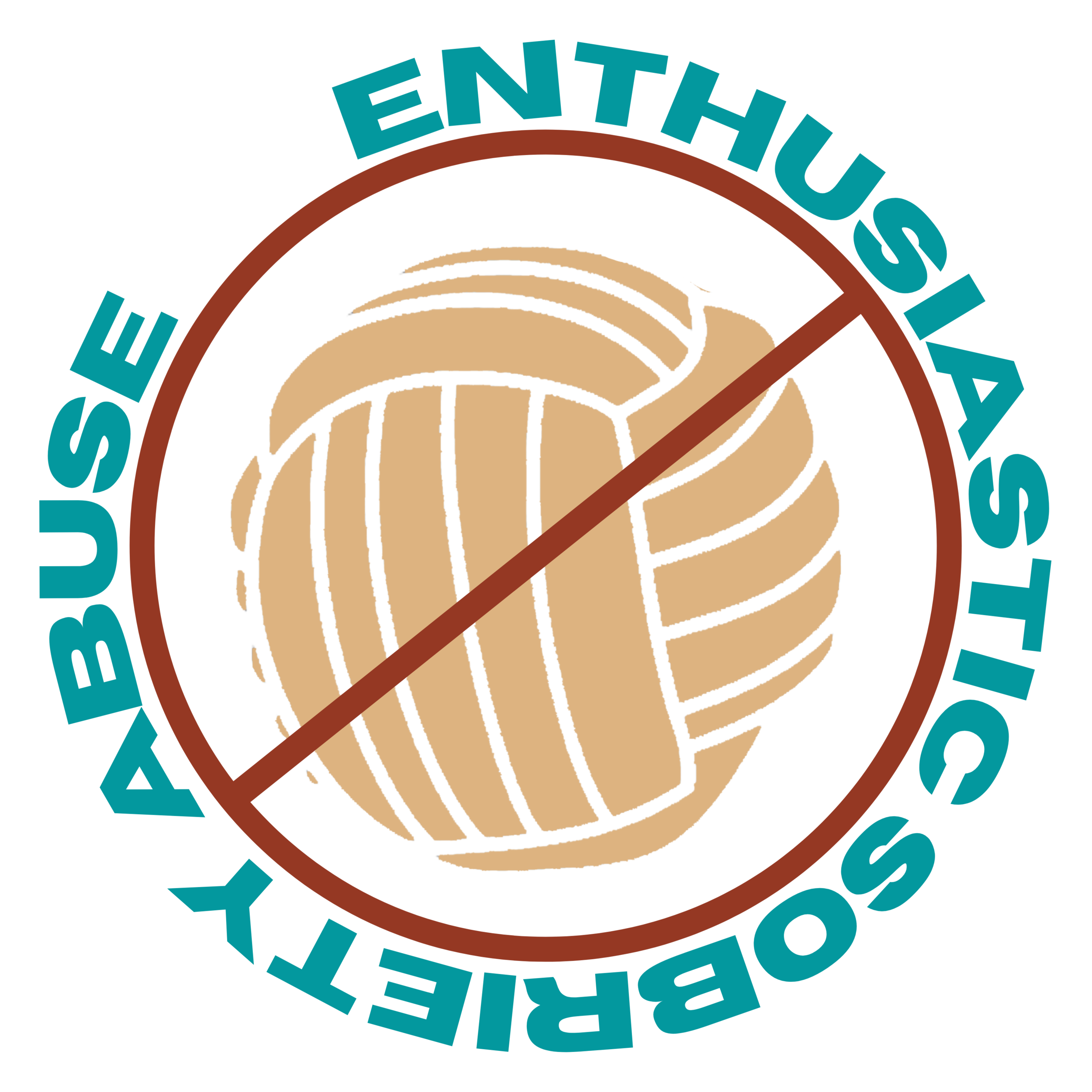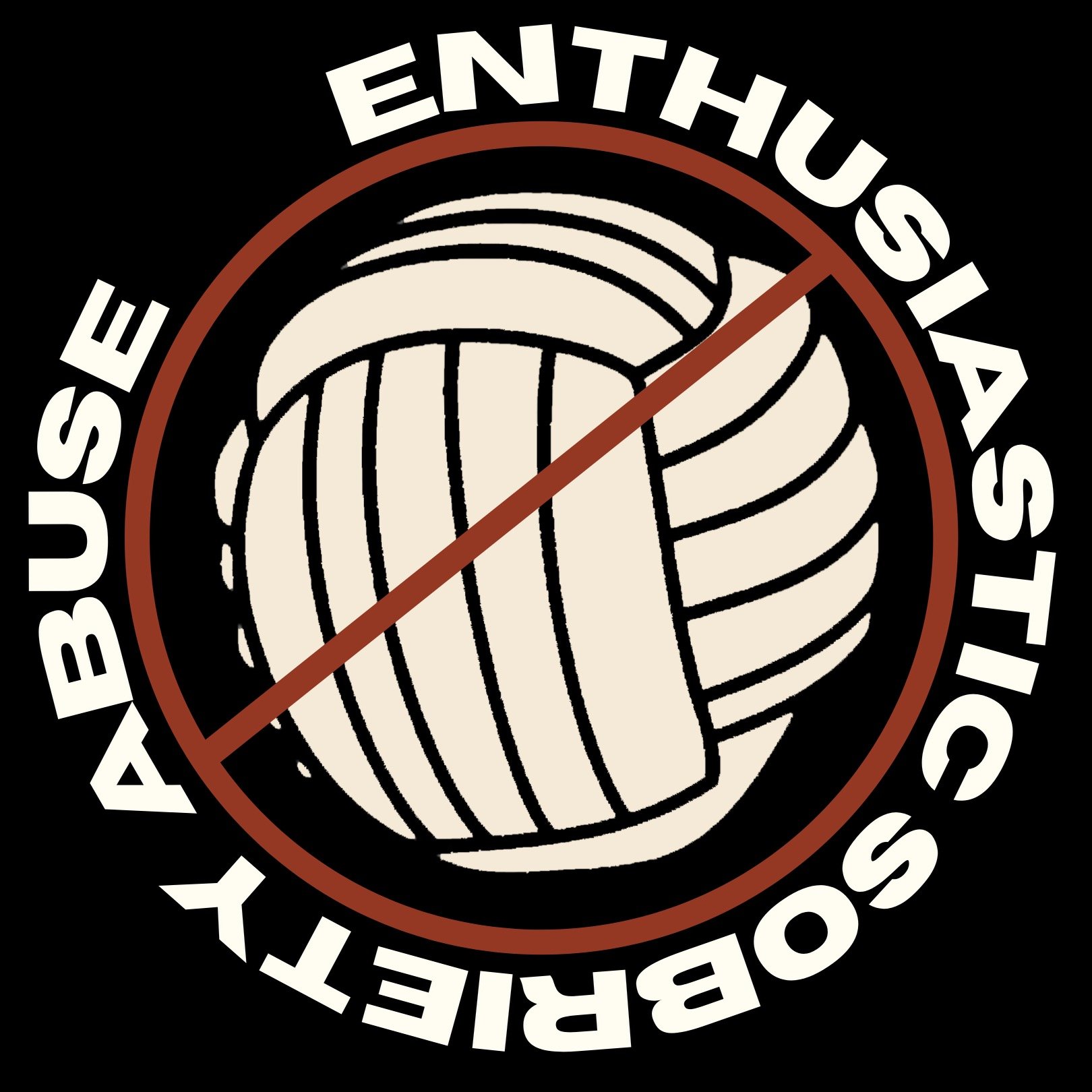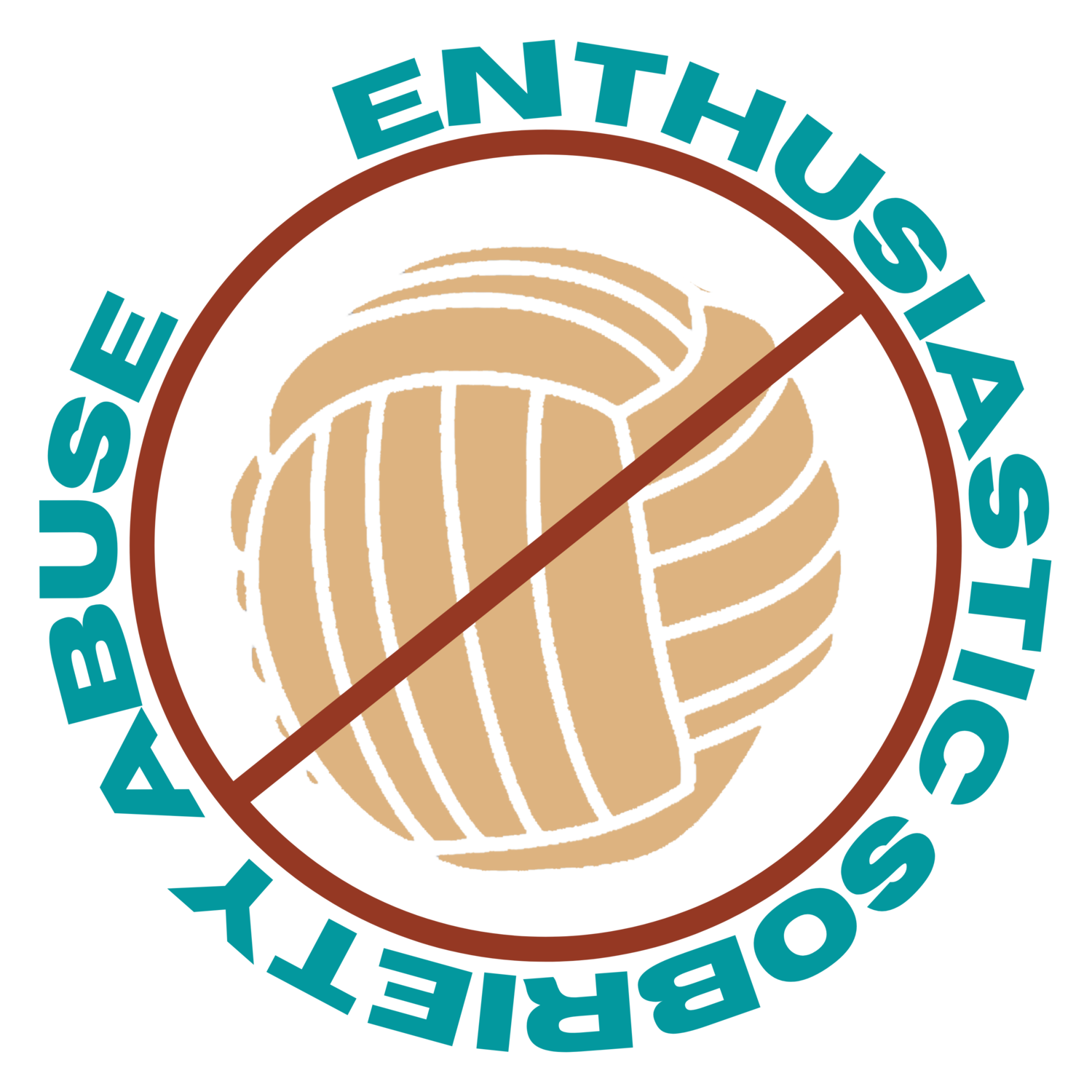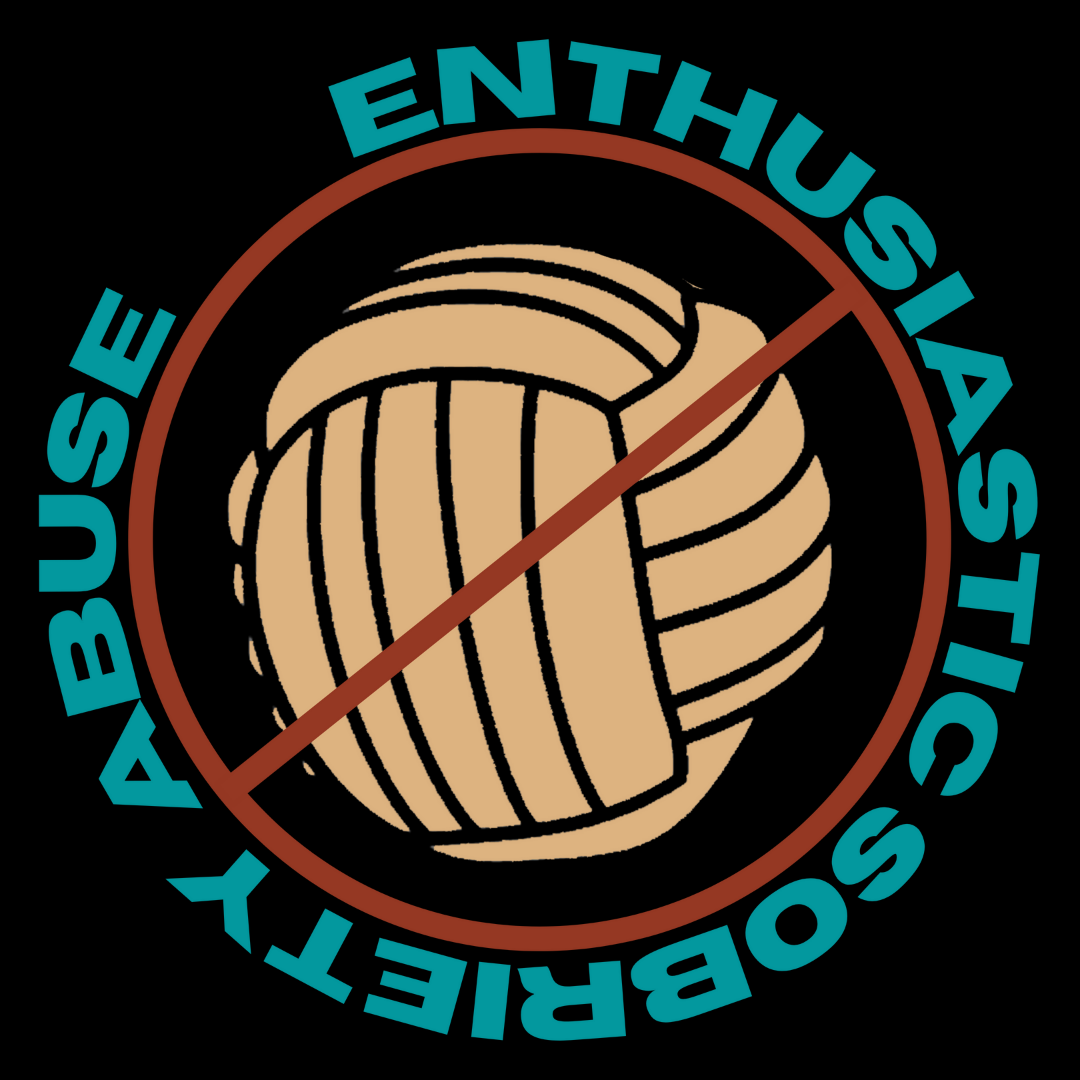
Pregnancy, Parenthood, Adoption & Abortion Support for Enthusiastic Sobriety Survivors.
Enthusiastic Sobriety Counselors are in no position to influence or decide on what a person should do with their pregnancy or parenting.
If you have experienced pregnancy, parenthood, adoption or abortion in the group - and feel you were not given appropriate support or may have been influenced in your choice, you are not alone. We have compiled survivor stories and support resources for pregnant or parent survivors of Enthusiastic Sobriety programs.
If you are currently in The Group and pregnant or a parent - we have provided information and resources for you to make your own decisions and figure out what is best for you. Feel free to contact us and we can connect you with an Enthusiastic Sobriety Survivor who has been in your position.

Making a decision about an unplanned pregnancy is personal. Accurate information and support helps, but only you can know what’s best for you.
-

Considering Parenthood
Deciding whether to raise a child is a very important and very personal choice. Everyone’s situation is different, and only you know what’s best for you and your family.
-

Considering Abortion
Abortion is common, and people have abortions for many different reasons. Only you know what’s best for you, but good information and support can help you make the decision that's best for your own health and well-being.
-

Considering Adoption
Some people choose adoption when faced with a pregnancy. Information and support is important, but the decision is personal and only you know what’s best for you.
“I didn’t follow through with this but Frank Szachta tried to get me to go away for 9 months and put my baby up for adoption and told me to act like it never happened.”
— The Cornerstone Program Survivor
-

Project Teenbirth
Project Teenbirth, Inc. is a 501(c)(3) non-profit community outreach program, specializing in teen pregnancy and young parent support. Project Teenbirth was 'birthed' by founder and teen parent advocate, Melinda Morales. It’s foundation was created on the belief that regardless of age, every one deserves support throughout all pregnancy experiences and outcomes, birth, and postpartum.
-

On Your Feet Foundation
On Your Feet Foundation is recognized as the leader in comprehensive post-placement support for birthparents, a demographic that has historically been under-served within the adoption community. We do this through case management, access to adoption-competent therapy, therapeutic retreats, education and counseling grants, adoption education and community-building.
-

Exhale Pro-Voice
The Exhale Pro-Voice community is filled with people like you: people who have had abortions and people who care about people who have abortions. Our Pro-Voice approach centers each individual’s unique context, family, culture, and abortion experiences. We follow your lead, hold nuance for you, and support you in tending to your wellbeing in a way that feels best for you. Text Exhale Pro-Voice for nonjudgmental after-abortion support. 617-749-2948
-

Power to Decide
We provide trusted, high-quality, accurate information—backed by research—on sexual health and contraceptive methods so young people can make informed decisions. We won’t stop until every young person has access to accurate, quality sexual health information and the full range of contraceptive methods—without barriers or judgment.

The Cornerstone Program Survivor Story
2007 - 2012
At the end of my time in the Group I became pregnant by another member. It had been my experience that using birth control was not sober so I don’t know what they expected to happen. I wasn’t kicked out immediately, but I also wasn’t still fully in the Group due to my family situation.
After I had my child, my mental health grew worse and worse. I almost died during child birth due to refusing medical intervention because of the Group beliefs I held on to.
My child’s father and I started using and he had friends who did much more than smoke weed so this ended up being very detrimental to me.
I was eventually told by Staff “there’s nothing else we can do for you,” Something that my mother should have been told have a decade sooner. I will never forget that conversation, I was devastated.
I had a handful of friends who I felt like we’re just waiting for their reason to stop talking to me as well. Very soon after I attempted to take my own life. It took years for me to get all of the mental health help I needed
“I had my son at 17 and I was not originally kicked out due to pregnancy, but I was kicked out after the baby was born and I kept him.”
— The Cornerstone Program Survivor
“Staff told me I had to get an abortion or leave PDAP. I left.”
— Palmer Drug Abuse Program Survivor
“I was refused help when I was desperate to get sober while pregnant.”
— The Insight Program Survivor
Parenting Support Resources
-

Zero to Three
Our mission is to ensure that all babies and toddlers have a strong start in life. At ZERO TO THREE, we envision a society that has the knowledge and will to support all infants and toddlers in reaching their full potential.
By bringing together leaders in the fields of medicine, mental health, social science research, child development and community leadership, we have built a strong reputation for delivering quality programs, products and services to millions nationwide.
-

Women, Infants & Children
WIC was established as a permanent program in 1974 to safeguard the health of low-income women, infants, and children up to age 5 who are at nutritional risk. This mission is carried out by providing nutritious foods to supplement diets, nutrition education (including breastfeeding promotion and support), and referrals to health and other social services.
-

Farmers Market Nutrition Program
The FMNP was established by Congress in 1992, to provide fresh, unprepared, locally grown fruits and vegetables to WIC participants, and to expand the awareness, use of, and sales at farmers’ markets. These coupons can be used to buy eligible foods from farmers, farmers' markets or roadside stands that have been approved by the state agency to accept FMNP coupons.
-

Tribe of Dads
Finding out you are going to become a father can be a confusing but exciting time in a young father’s life. While all these feelings are normal, it can be overwhelming trying to understand what to expect, finding resources available in your community, and learning ways to be engaged with fatherhood. Here at Tribe of Dads, we’ve put together a guide for adolescent fathers and ways they can step into the role of teenage fatherhood.
On Smoking and Pregnancy in The Program:
“I was pregnant and they wanted me to keep smoking pretty much”
— FullCircle Program Survivor
“Wendy Stonebraker, Joy Meehan, Val Azevedo, and Renae Smith all said ‘smoke while you’re pregnant to have a baby with a smaller birth weight so birthing is easier.’”
— The Pathway Program Staff Survivor
“Clint Stonebraker asked me to take a pregnant group member to meet my birthmom for lunch hoping it would convince her to give the baby up for adoption.”
— The Pathway Program Survivor
How Adoption Works
-
It’s important to fully commit to adoption for your unborn baby before you begin the adoption process. This choice is up to you and only you. If you need help making this decision or exploring your options (including giving your unborn baby up for adoption), you can always contact an adoption counselor to get the support you need.
-
Once you select an adoption professional, you’ll work with them to craft an adoption plan specific to you and your needs in giving your unborn child for adoption. Make sure your adoption agency puts you in the driver’s seat of the adoption process in order to pursue adoption for your unborn baby. They should be able to answer every facet of your question, “How do I put my unborn baby up for adoption?”
-
If you are considering adoption for your unborn baby, know that you get to choose your child’s adoptive family. You’re making sure your child gets the life he or she deserves, and it’s absolutely your right to ensure that he or she gets it. To find someone to adopt your unborn baby, your adoption professional will go over adoption profiles with you and help you to select a family that meets your criteria. Looking for a home for your unborn baby can even be enjoyable with the right adoption professional.
-
In modern-day adoptions, we always recommend some degree of openness and communication in an adoption situation. This will enable you to develop a relationship with your child as he or she grows up, and watch as they grow into a happy, healthy adult. To begin this relationship, you can start by getting to know the adoptive family you choose while you are still pregnant.
-
Like any other pregnant woman, you’ll develop a birth plan for your child. You’ll determine how you want to deliver, whether or not you want pain medication, who should be in the room, etc. But if you’re considering adoption for your unborn child, you’ll need to go into a bit more detail. Your adoption professional will work with you to go into even more detail about the day. Who should be in the delivery room? Do you want to see the adoptive parents? Do you want time alone with your baby? It’s all entirely up to you.
-
After the baby is born, you’ll need to officially give your consent before the adoption for your baby is complete. When you sign the adoption papers and issue your consent, you’re agreeing to terminate your legal parental rights so that your child’s parents can assume those rights.
This process is different for women in each state, but it’s important that you work with your adoption agency to properly give consent to your child’s adoption. A good adoption agency will always ensure that women have free access to independent legal counsel for this step because it’s important that you fully understand what you’re agreeing to. Not all adoption attorneys or other types of professionals will provide this level of protection for you.
-
The nature of adoption has changed greatly over the years, and open adoptions are one of the many ways that birth parents can take charge of their adoption plans. Instead of having to wonder whether or not they chose the right family or how their child is doing, they will always know. In an open adoption, birth parents have the opportunity to get to know the family they have chosen for their child, which puts many people at ease and makes the difficult decision of adoption much easier.
More importantly, birth parents will get to know their child. Not only does this provide peace of mind for the birth parents, but it gives them the opportunity to talk to their child about adoption and provide that same peace of mind to the child.
-
Prospective birth mothers often pursue closed adoption to gain a sense of closure or to avoid the emotional distress of watching someone else raise their child. Every person and adoption situation is unique, and only a birth mother can know what the right decision is for her situation.
It’s important to keep in mind that, while adoption relationships can change, it is more complicated to increase contact than to decrease it. If a birth mother starts with an open relationship and then decides later that she needs distance, she can do this at any time. However, if an adoption is closed and a birth mother wants more contact, then she has to come to an agreement with the adoptive family. Therefore, it is especially important that a birth mother choosing closed adoption is sure that it is what she wants.
-
It is common for a prospective birth mother to feel that an open relationship with the family and especially her child will be too much to move on with her life. This is why nearly 90 percent of birth mothers choose a semi-open adoption because it provides enough contact for them to stay abreast of their child’s upbringing without personally being involved.
In these types of adoptions, the adoption professional will serve as a mediator for all contact between both parties, before and after the adoption. This may include mediating conference calls, emails and visits before the adoption, and forwarding pictures and letters of the child to the birth mother once or twice a year after the adoption.
Mediated adoption gives birth parents the peace of mind that their child is growing up in a happy and loving home, without being an active part of their lives.
Adoption Support Resources
-

National Council For Adoption
NCFA has worked tirelessly to increase public understanding of adoption and promote a positive image of adoption as a loving way to build nurturing, permanent families. We advocate for ethical, sound policies and services regarding adoption in an inclusive, non-partisan way. We collaborate with adoption service providers, like-minded national advocacy and education groups, individuals, and child welfare authorities worldwide to promote the best interests of children everywhere.
We are committed to being a lifelong trusted resource for adoptive families, adopted individuals, and birth families, as well as the professionals who serve them and the policymakers whose decisions impact them.
-

American Adoptions
American Adoptions is currently one of the largest domestic adoption agencies of its kind in the United States.
We are a fully licensed, not-for-profit domestic adoption agency that works across the nation.
Our large, qualified staff provides outstanding support and step-by-step instruction to expectant mothers and waiting families throughout the adoption process. American Adoptions knows that each adoption story has it's own unique beginning and ending - let us show you how to begin your own adoption story today.
-

Adoptions Together
We provide prenatal support and counseling for pregnant women considering adoption services as well as interim care and placement for children in need. Every year, we guide and support 400 women facing unplanned pregnancies to help them make the best decision for their child.
One of the agency’s guiding principles is inclusivity: factors such as race, religion, marital status, wealth or sexual preference, sexual orientation, gender identity or gender expression don’t determine what kind of parent someone will be and they are never variables that we consider when finding a home for a child. Through openness, honesty and communication we work with every family to ensure that they receive the education, support and guidance they need through the entire placement process.

Liz Nickerson, President of ESAAlliance, shares her experience in The Insight Program and how her counselors expelled her from The Group for her pregnancy and abortion after her staff sponsor took her off of birth control because it was considered a “mood and mind altering” substance.
The Love Bomb
The Atavist Magazine - Daniel Kolitz, July 2021
“Another client got pregnant and, according to a half-dozen people with knowledge of the situation, was coerced by the Meehans into getting an abortion.”
Fear, Fraud and ‘Fun Felonies’
YES! Weekly - Ian McDowell, February 2021
Nickerson also stated that one of the medications she was forbidden to take when she was in the Atlanta and Greensboro Insight programs was birth control.
“I started dating in the group when I was 17, which was allowed because the staff and my sponsors approved the arrangement. You can’t date without this approval, and they discourage you if they think you have a crush on the wrong person. I asked my mom to get me on birth control, and she did. A few months later, I was complaining to a friend in the group about my acne and being moody because of taking the pill. Then my counselor / sponsor pulled me into her office to tell me that ‘birth control is not sober because it is mood and mind-altering.’ And she told me I had to get off of it.”
Nickerson stated that she got pregnant. “They ended up kicking me out of the group for this. Both the program director and my counselor accused me of getting pregnant on purpose to ‘trap’ my boyfriend.”
Pathway’s Problematic Preachings
Tucson Weekly - Arek Sarkissian II, May 2005
When Eric Balog and his wife, who was also a counselor with the group, moved down to Tucson to attempt a launch of its current operation, she became pregnant, which was against the suggestion of the group.
Elders in the group, which included Meehan and Stonebraker "suggested" Balog's wife get an abortion--or else, because management felt the two weren't ready to have a child. They decided to have their child and were excommunicated from the group.
Former client Erica Baker said she, too, experienced the same ultimatum. At the age of 17, she became pregnant by her boyfriend, who was also a Pathway client. After he brought it up to his counselor, the decision came back from Stonebraker. After being told repeatedly that leaving the group of peers they got sober with would mean relapse and death, keeping the child was not an option, Baker said.
"You don't understand: You don't leave the group," she said.
Baker said she lived with the guilt and misery of the abortion for years, until at the age of 22, she became pregnant again. She leapt at the opportunity.
Abortion Support Resources
-

Abortion Finder
Abortion Finder is an easy-to-use search tool built on a database of over 750 verified abortion providers across the country. You can enter your age, the first day of your last period, and your location, and we will give you a list of abortion providers who can help you.
We are committed to making sure that everyone who needs help finding an abortion can access our comprehensive, nationwide database of abortion providers. That’s why Abortion Finder is also available via text message. For service in English, text “Hello” to 435-3-FINDER; for service in Spanish, text “Hola” to 218-3-BUSCAR. Then give us your zip code, and we’ll reply with the three abortion providers closest to you.
-

National Network of Abortion Funds
The National Network of Abortion Funds builds power with members to remove financial and logistical barriers to abortion access by centering people who have abortions and organizing at the intersections of racial, economic, and reproductive justice.
Member organizations work across our network to remove financial and logistical barriers to abortion access. Some of them work with clinics to help pay for your abortion. Some of them offer support such as transportation, childcare, translation, doula services, and somewhere to stay if you have to travel to get your abortion.
-

Aid Access
Aid Access supports women, girls, trans men, nonbinary and all people with unwanted pregnancy to access abortion or miscarriage treatment. If you are healthy and less than 10 weeks pregnant, click here for an online consult for abortion pills by mail.
Aid Access consists of committed team of doctors, activists and advocates for abortion rights. The purpose of the website and the service is to create social justice and improve the health status and human rights of women who do not have the possibility of accessing local abortion services.
Types of Abortion
There are two kinds of abortion — the abortion pill and in-clinic abortion. Medication abortion (also known as the abortion pill) consists of using two different medicines called mifepristone and misoprostol to end a pregnancy. This medicine causes cramping and bleeding to empty your uterus. It’s kind of like having a very heavy and crampy period, and the process is very similar to an early miscarriage.
In most states, the abortion pill can only be taken up to 10 weeks after the first day of your last period. If you’re past 10 weeks, you can still get an in-clinic abortion. Your doctor or nurse will give you detailed directions about where, when, and how to take the medicines. You may also get some antibiotics to prevent infection.
In-clinic abortion (also called a surgical abortion) is a medical procedure. It works by using suction to empty your uterus. How late you can get an abortion depends on the laws in your state and what doctor, abortion clinic, or Planned Parenthood health center you go to. It may be harder to find a doctor or nurse who will do an abortion after the 12th week of pregnancy, so it’s best to try to have your abortion as soon as possible.
“We had a day in training where Clint Stonebraker and Glenn Schendel told us about how it’s fucked up to birth your child at the hospital. If you do they will cut the flesh between your anus and vagina open to force you to give birth sooner.”
— The Insight Program Staff Survivor
Birthing Options
Hospitals: If you have chosen an obstetrician or family practitioner as your health care provider, you will most likely be making plans for a hospital birth. The number of births attended by midwives in hospital settings is increasing. Some families feel more comfortable having access to technology and skilled professionals in case an emergency arises.
However, in a hospital setting, there may be more restrictions during labor and birth. Make sure to tour your hospital before your birth and learn about all the guidelines and policies regarding laboring techniques, routine interventions, use of cameras or video, and newborn care
Birthing Center: The first free-standing birthing center opened in 1974 in an effort to give women a more relaxed labor and birth experience. Midwives are often the only health care providers available at free-standing birthing centers. However, some obstetricians are willing to do deliveries at birthing centers located inside hospitals.
Birthing centers usually have fewer restrictions and allow for more freedom in making decisions about labor. Birthing centers are often recommended for pregnancies that are considered low-risk and for women who are seeking to have a birth with few interventions.
If you have particular preferences for your birth, be sure to contact a birth center representative beforehand to discuss policies and guidelines.
Home Birth: For most of recorded history, women have had their babies at home. Many women feel more comfortable and relaxed when giving birth in a familiar environment. However, this choice comes with extra responsibilities. For instance, families wanting to birth at home need to be well-educated about the risks and be open to the possible need to transport the mother and or baby to a hospital in the event of an unexpected complication.
Midwives are the main health care providers for home births. Home births are recommended for women with low-risk pregnancies. Many women who do not want any interventions and who want a very family-centered birth experience choose a home birth option.
Additional Support Resources
-

All-Options
All-Options uses direct service and social change strategies to promote unconditional, judgment-free support for people in all of their decisions, feelings, and experiences with pregnancy, parenting, abortion, and adoption. We recognize that these issues are complex, but one thing is certain: Everyone deserves to have all options!
Our All-Options Talkline offers free peer counseling to callers from anywhere in the US or Canada. Simply call 1-888-493-0092 for open-hearted support regarding abortion, adoption, infertility, parenting, and pregnancy loss.
-

Grow it.
Sex, Etc. is on a mission to improve teen sexual health across the country! Each year, five million young people visit Sexetc.org, and over 45,000 read our magazine to get honest and accurate sexual health information. We’ve helped teens with answers to their question about sex, relationships, pregnancy, STDs, birth control, sexual orientation and more!
Sex, Etc. is a comprehensive sexuality education website for teens 13- to 19-years old. Sex, Etc. is published by Answer. All information is provided free of charge for educational purposes only.
-

Postpartum Support International
The mission of Postpartum Support International is to promote awareness, prevention and treatment of mental health issues related to childbearing in every country worldwide.
Our Postpartum Support Groups are conducted using a peer-to-peer support model and are not intended for those experiencing a mental health crisis. Please reach out to the National Suicide Prevention Lifeline (1-800-273-8255) if you are in need of crisis support.

Birth Control in The Group
Contraception Options 101:
-
Contraceptive methods the use hormones alter how your body works in order to prevent pregnancy. These range from daily-use options, such as birth control pills, to long-term-use approaches, such as hormonal IUDs, which can stay in place for several years.
-
Intrauterine devices (IUDs) are one of the most effective forms of birth control. IUDs are inserted into the uterus by a trained healthcare professional, and can work for up to 10 years, depending on which type you choose. They can also be removed any time if you want to get pregnant.
-
Other than condoms, these older methods of contraception, such as sponges or diaphragms, typically aren’t as effective. Most barrier methods need to be inserted into the vagina before sex.
Male condoms and internal condoms remain effective forms of contraception that can also help prevent sexually transmitted infections (STIs).
-
Natural family planning or fertility awareness methods (FAM) generally involve a woman taking note of the most fertile days of her menstrual cycle and avoiding sex during these days.
FAM takes a lot of dedication, both to track changes over several months and to avoid vaginal sex (or use condoms) when most fertile.
-
Pulling out, also known as withdrawal, is when a man removes his penis from the vagina just before ejaculating. It’s tricky, because pre-ejaculate can form before withdrawal. Avoiding pregnancy means keeping all sperm away from the vagina, and even a small amount of sperm can get into the vagina and lead to pregnancy. This method is best used when combined with another birth control method, such as condoms
-
Avoiding any kind of vaginal, anal, or oral sex is called abstinence, and activities such as kissing, dry-humping, masturbating, massage, and talking about fantasies are considered outercourse. The idea is to keep sperm away from the vagina to avoid pregnancy, but these methods require a lot of dedication and willpower.
-
For women, sterilization or tubal ligation is a way to permanently prevent pregnancy. It requires surgery to seal off the fallopian tubes so that an egg can never reach a sperm and be fertilized.
For men, vasectomy is the option for permanent birth control. A vasectomy is a simple surgery in which the small tubes in the scrotum that carry sperm are cut or blocked off, so sperm can’t leave the body and cause pregnancy.
Permanent sterilization methods do not protect against sexually transmitted infections; condoms are still necessary to reduce the chances of contracting an STI. While vasectomy and tubal ligation reversal procedures exist, they are pricey and not always effective. Choose these options if you are sure you don’t want to have children (or more children).
-
If used as soon as possible after unprotected sex, emergency contraception (EC) is a safe way to prevent pregnancy. Methods are more or less effective depending on a few variables, such as how long it has been since you had unprotected sex and your weight.
Anonymous Mass Complaint Data
Out of 225 Survivors who participated in the Anonymous Mass Complaint against Enthusiastic Sobriety Programs:
91 were told Birth Control was not sober.
68 were taken off of Birth Control.
13 were kicked out of The Group due to pregnancy.
Tell Your Story
If you have a story to share, a perspective to highlight, or a message to parents, staff, and group kids, please submit your story to us.
Anonymity will always be our default to posting survivor stories, unless with explicit permission from the survivor to share their story with a photo of themselves from when they were in The Program.
Contact us.
If you are pregnant in The Group, and would like to talk to an Enthusiastic Sobriety Survivor who has been in your position, please contact us and we will connect you with someone from our Survivor Community Support Network.
info@esaalliance.org












